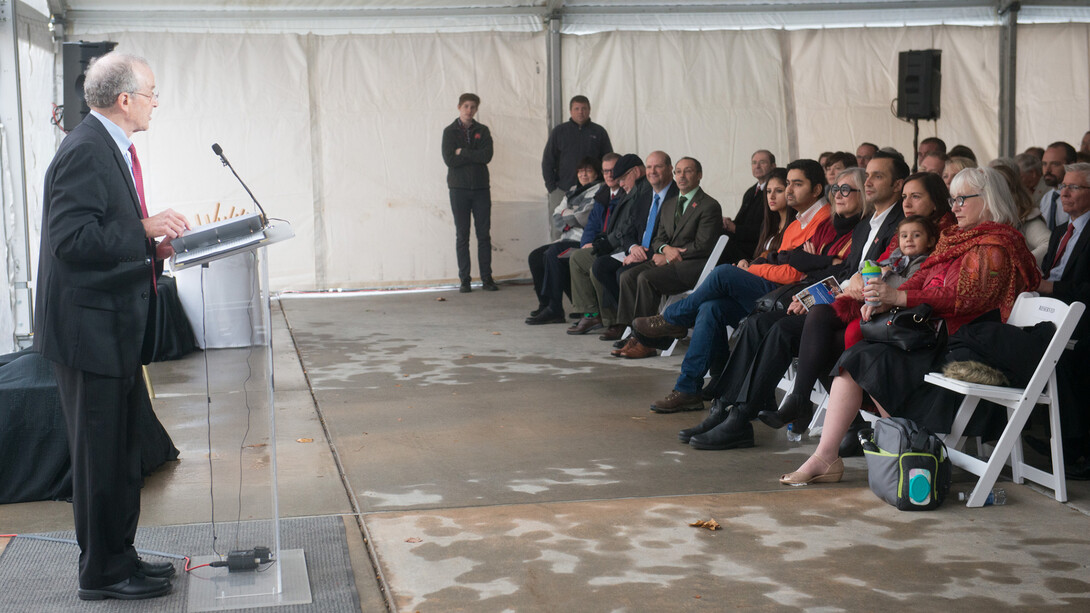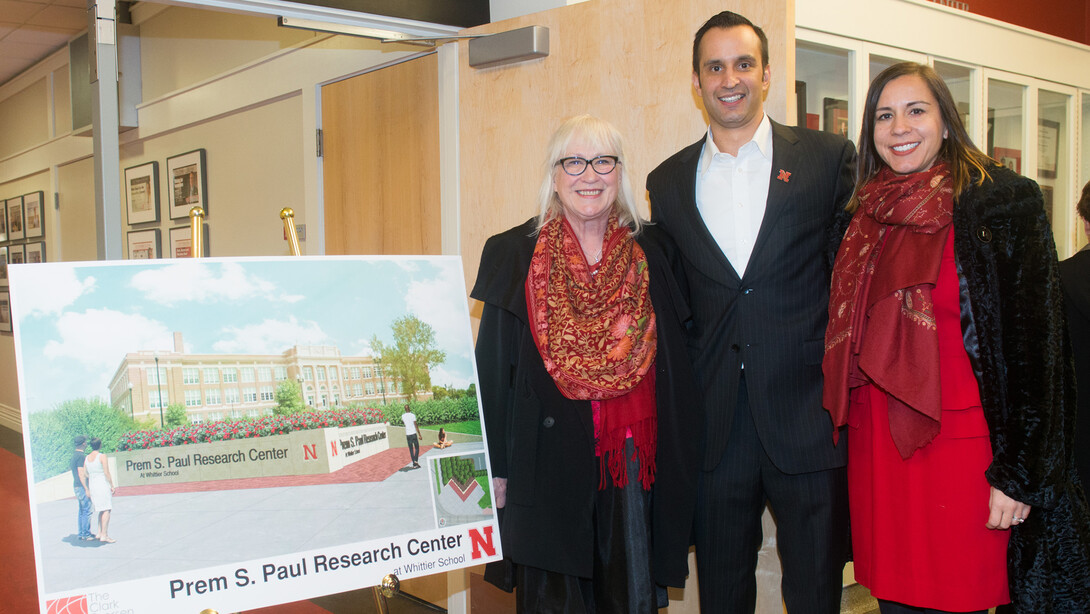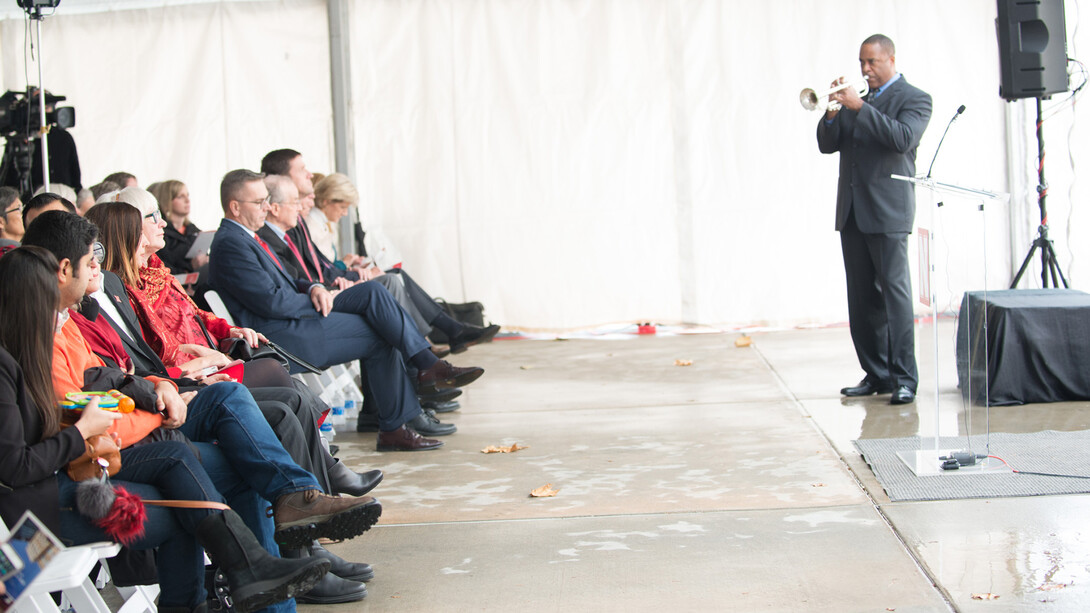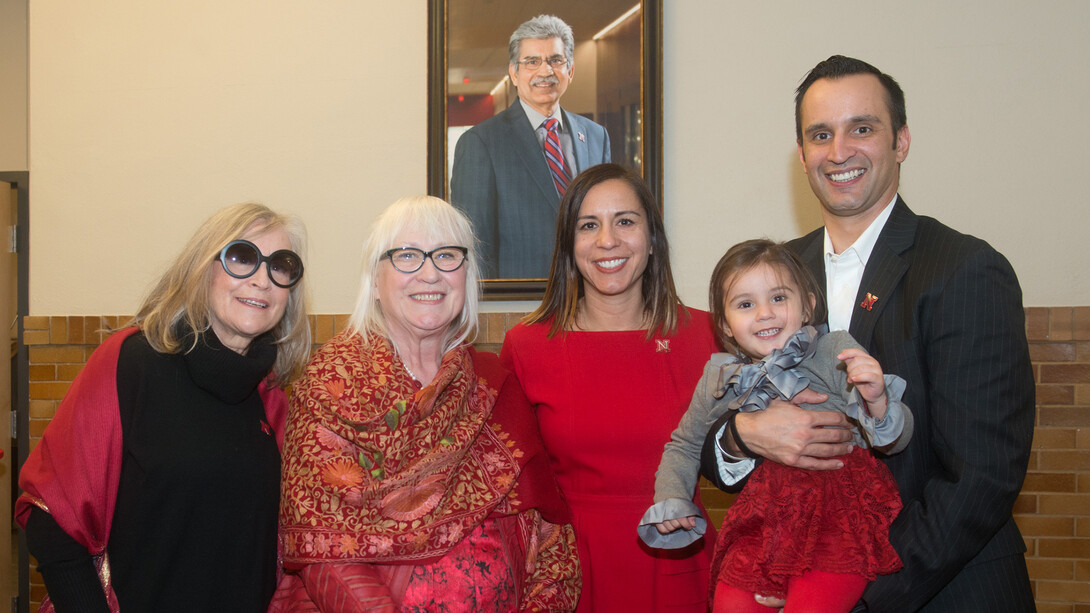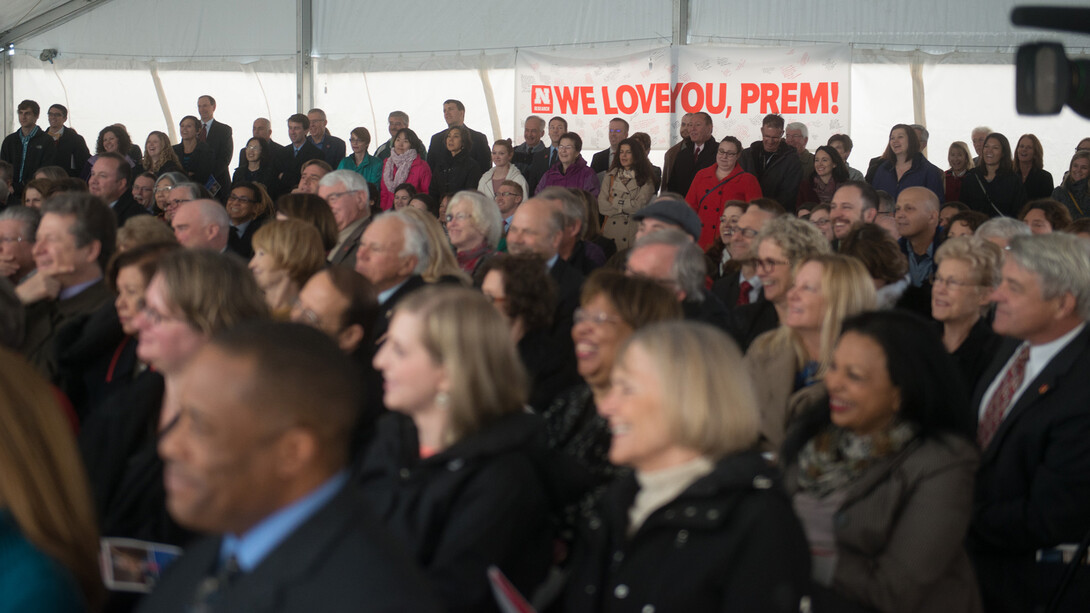
Speaking before a standing-room only crowd of more than 300 at the Prem S. Paul Research Center at Whittier School on Nov. 22, former Chancellor Harvey Perlman recalled a chance encounter that had a major impact on the University Nebraska-Lincoln.
During the fall of 2000, Perlman, then the university’s interim chancellor, by coincidence sat next to Paul at a meeting in Washington, D.C. Paul, then at Iowa State University, was a finalist to become Nebraska’s vice chancellor for research and dean of graduate studies. That accidental meeting was their first encounter, and one that would lead to a transformation at Nebraska.
“He taught us how to recognize and more importantly celebrate excellence and accomplishment,” Perlman said. “Over the course of his tenure, research expenditures exploded. Our rate of growth exceeded almost every other major research university in the country.”
Perlman’s remarks came at a remembrance of Paul’s contributions and a celebration of the recently renamed Prem S. Paul Research Center. Paul, who died Sept. 2, served at Nebraska for 15 years, having led as vice chancellor for research and economic development for the last eight years. Attending the event were Paul’s widow, Missi Paul; daughter Neena Paul; son Ryan Paul; and granddaughter Ashland.
The event was a day for honoring Paul, his legacy, his family, and how much they have meant to the greater University of Nebraska community over the last 15 years, said Chancellor Ronnie Green.
“It’s a special day to be in Nebraska,” Green said, remembering when Paul arrived on campus in 2001 and started asking big questions like: How big can we be? How bold can we be? How much can we build? What impact can we have on the world?
“That’s the way way Prem thought, believed, worked and acted in everything he did for us here as our vice chancellor,” Green said.
Paul worked with four University of Nebraska presidents during his tenure in Lincoln, including current President Hank Bounds, who also spoke at the event.
“I feel a little cheated. I had a very limited time to work with Prem,” Bounds said. “He was a great human being and I felt honored to have the short amount of time that I had with him.”
Other highlights from the event’s presentations:
- James Van Etten, co-director of the Nebraska Center for Virology and the William Allington Distinguished Professor of Plant Pathology, reviewed Paul’s extensive academic and administrative accomplishments. These included virology research that led to 11 patents, and the training of 30 graduate students and postdoctoral scientists at Iowa State University. One of those students, X.J. Meng of Virginia Tech University, was elected to the National Academy of Sciences earlier this year, one of the highest honors given to U.S. scientists.
“Prem was a wonderful colleague and it was an honor to consider him a personal friend,” Van Etten said. “Prem, we love you and we miss you very much.”
- Susan Sheridan, director of the Nebraska Center for Research on Children, Youth, Families and Schools and the Willa Cather Professor of Educational Psychology, reflected on Prem’s tireless dedication to nurturing excellence, to interdisciplinary research and to his vision for renovating Whittier.
“Whittier School represents bold, visionary work that can change the world,” Sheridan said. “It’s so much more than bricks and mortar. In many ways the Whittier School is an embodiment of who Prem was. It represents relationships of people with different perspectives, backgrounds and vantage points.”
Paul’s son, Ryan, spoke for the family, saying “I can’t begin to tell you how proud I am of my father and his accomplishments, especially at UNL.” He also related how his father “infused my sister and me with his infectious, positive energy and support. That’s the same energy he brought every day to the University of Nebraska.”
Echoing principles that Prem Paul was famous for, Ryan Paul encouraged the audience to “put your passion first and remember to think big.”
Chancellor Green ended the program by reminding everyone that, “there is no place like Nebraska.”
Concluding the event was a music arrangement performed by Darryl White, associate professor of trumpet and jazz studies at the Glenn Korff School of Music. His improvised rendition of “There Is No Place Like Nebraska” included strains of “Amazing Grace.”
